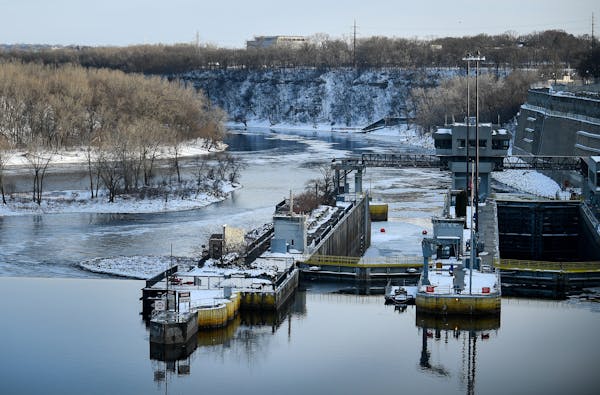The possibility of copper-nickel mining near the Boundary Waters Canoe Area Wilderness and Voyageurs National Park moved an incremental step closer to reality Wednesday.
In a letter, the U.S. Department of the Interior reinstated the Twin Metals Minnesota mineral leases from 2004 and its application for new leases.
The leases ultimately date back to 1966 and, mining opponents say, sidestep the bedrock environmental protection laws that have been put in place in the past 62 years, particularly the National Environmental Policy Act (NEPA).
"NEPA says you cannot renew these mineral leases because they have the potential to affect a national wilderness area without considering the environmental impact of mining and involving the public," said Becky Rom, national chair of Campaign to Save the Boundary Waters and vice chairwoman of Northeastern Minnesotans for Wilderness.
Bob McFarlin, a spokesman for Twin Metals Minnesota, acknowledged that NEPA did not exist in 1966. But, he said, when the leases were renewed in 1989 and again in 2004, they did go through the NEPA process.
"And in each case, and this is documented, the federal agencies … determined the lease renewals had no environmental consequences."
Rom disputes the assertion that the 1989 and 2004 renewals went through the NEPA process.
"Breathing life into very old 1966 leases is an end run around a meaningful NEPA review that will show this is the wrong place for copper mining and there should be no leasing of the public's minerals in this location," Rom said.
McFarlin said the lease renewals will allow Twin Metals to do exploration activities, groundwater monitoring and project development.
If and when the company develops a project, it would be subject to multiyear, multiagency environmental processes.
"Every well, every hole in the ground, every road, every step of the way, every action … goes through a permitting process and an environmental review," he said.
Still, Northeastern Minnesotans for Wilderness and its partners indicated their intent to file a lawsuit to challenge the Department of the Interior's decision to reinstate Twin Metals' renewal application.
The Interior Department's decision reverses a decision made in the closing weeks of President Barack Obama's administration to deny the lease renewals.
The Obama administration had cited the potential harm from acid mine drainage to the Boundary Waters Canoe Area when it declined to renew the leases in December 2016.
In December 2017, however, Interior Secretary Ryan Zinke overturned the year-old ruling, saying the Interior secretary does not have the discretion to deny Twin Metals its leases for copper and nickel mining.
Said McFarlin, "This letter does not renew those leases. It's a step in the process. The leases were denied renewal and they were terminated. Then the legal opinion was reversed.
"There is still a final review process to be completed," he said. "In that process, the company will work with the Department of Interior to review the terms of the lease and the agency will decide whether any of those terms will be updated or changed."
Rom said Zinke's actions are a "trick."
"The mineral leases grant the right to explore, build mine facilities and to mine," she said. "The only thing environmental review does later is look at how."
In an e-mail to the Associated Press, Interior Department spokeswoman Heather Swift said that the reinstated leases will remain in effect until the bureau formally acts on Twin Metals' lease renewal application and that it will be "subject to reasonable updated terms and conditions."
Twin Metals can now resume exploration activities, Swift wrote, but the decision doesn't authorize the company to begin mining.
U.S. Rep. Tom Emmer, R-Minn., who authored legislation that passed the House to direct the bureau to renew the leases, welcomed the decision. He called it "another step to full restoration of our state's right to explore and advance reasonable mining."
Staff writer Josephine Marcotty and the Associated Press contributed to this report.

Want to share info with the Star Tribune? How to do it securely

'Safe recovery sites' would offer syringes, naloxone and more to people using drugs. The plan could be in peril.
New Minnesota GOP leaders seek peace with party's anti-establishment wing

Who is Republican Lisa Demuth, Minnesota's first House speaker of color?

